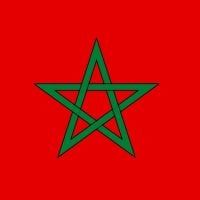Deadline: 12 January 2018
Partnerships for Enhanced Engagement in Research (PEER) has launched a Call for Pre-Proposals for its Cycle 7 grant program with an aim to leverage USG scientific investment in R&D to support USAID’s development goals in priority countries.
This cycle marks the return of the program’s Open Call for proposals from all eligible countries on a wide range of development-related fields, including biodiversity, agriculture, environment, clean energy, disaster mitigation, food security, water/sanitation, urbanization, democracy and governance, and education.
Funding Information
- Most projects are anticipated to run for one to two years.
- Annual funding installments are dependent on completion of financial and technical reporting requirements. Single institution awards are anticipated to range in size from $40,000 to $80,000 (USD) per year for one to two years.
- A few larger and more complex projects (those involving multiple institutions and/or multiple countries, with one of them serving as the lead) may receive between $80,000 to $100,000 (USD) per year for up to two years.
- The maximum award amount is $200,000 over two years. The maximum project duration is two years (not three years, as in past cycles of PEER).
Focus Areas
- Multiple Countries/ Open Call
- Multiple Countries/ Family Planning and Reproductive Health
- Cambodia/ Investigator Development Awards: Multiple Sectors
- Indonesia/ Multiple Sectors and Biodiversity
- Laos/ Nutrition and Disabilities Capacity Strengthening
- Peru/ Impacts of Extractive Industries on Indigenous Peoples in the Peruvian Amazon
- Haiti/ Education
- Middle East and North Africa/ Refugee Host Communities Health
- Tunisia/ Multiple Sectors
- Zambia/Technological and Social Alternatives to Charcoal Use and Production
How to Apply
Interested applicants can apply via given website.
Eligible Countries:
- Multiple Countries/ Open Call
- Asia: Afghanistan, Bangladesh, Burma, Cambodia, India, Indonesia, Kazakhstan, Kyrgyz Republic, Laos, Maldives Nepal, Pakistan, Philippines, Sri Lanka, Tajikistan, Thailand, Timor-Leste, Turkmenistan, Uzbekistan,Vietnam
- Sub-Saharan Africa: Angola, Benin, Botswana, Ethiopia, Ghana, Guinea, Kenya, Liberia, Madagascar, Malawi, Mali, Mozambique, Namibia, Nigeria, Rwanda, Senegal, Sierra Leone, South Africa, Tanzania, Uganda, Zambia
- Latin America and Caribbean: Brazil, Colombia, Dominican Republic, El Salvador, Guatemala, Haiti, Honduras, Jamaica, Mexico, Nicaragua, Peru
- Middle East: Egypt, Iraq, Lebanon, Morocco, Tunisia, West Bank/Gaza
- Europe And Eurasia: Albania, Armenia, Azerbaijan, Bosnia and Herzegovina, Georgia, Kosovo, Macedonia, Moldova, Serbia
- Multiple Countries/ Family Planning and Reproductive Health
- Asia: Afghanistan, Bangladesh, India, Nepal, Pakistan, Philippines
- Sub-Saharan Africa: Benin, Ethiopia, Ghana, Guinea, Kenya, Liberia, Madagascar, Malawi, Mali, Mozambique, Nigeria, Rwanda, Senegal, Tanzania, Uganda, Zambia
- Latin America and Caribbean: Haiti
- Investigator Development Awards: Multiple Sectors: Cambodia
- Multiple Sectors and Biodiversity: Indonesia
- Nutrition and Disabilities Capacity Strengthening: Laos
- Impacts of Extractive Industries on Indigenous Peoples in the Peruvian Amazon: Peru
- Education: Haiti
- Refugee Host Communities Health: Egypt, Lebanon, Morocco, Tunisia, and West Bank/Gaza
- Multiple Sectors: Tunisia
- Technological and social alternatives to charcoal use and production: Zambia
For more information, please visit PEER Cycle 7.









































